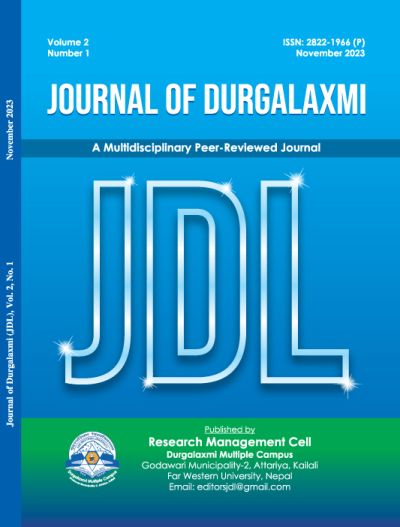Initial Public Offering (IPO) and Factors Influencing Investment Decision: Evidence from Dhangadhi
DOI:
https://doi.org/10.3126/jdl.v2i1.65407Keywords:
information processing perspective, prospect theory, finance and behaviour, security marketAbstract
This study examines the initial public offering (IPO) and factors influencing investment decisions: evidence from Dhangadhi on the prospectus review, academic qualification, and experience. Prospect Theory and the Information Processing Perspective are discussed to understand the psychological biases and information processing capabilities that influence investors in IPOs. Data was collected through a survey of 200 respondents to investigate these factors empirically. The results of the study indicate significant relationships between the variables. The correlation analysis reveals strong positive correlations between the review of the prospectus and investment decision, as well as experience and investment decision. The correlation between academic qualification and investment decisions was positive but relatively weak. Furthermore, the regression analysis confirms the influence of these factors on investment decisions. The regression results demonstrate that reviewing a prospectus, academic qualification, and experience significantly affects investment decisions in IPOs. A higher review of a prospectus, educational qualifications, and experience are associated with more favorable investment decisions. The findings of this study have important implications for investors, financial professionals, and policymakers. Future research could consider a more extensive and diverse sample and investigate additional factors influencing IPO investment decisions.
Downloads
Downloads
Published
How to Cite
Issue
Section
License
Copyright (c) 2023 The Author(s)

This work is licensed under a Creative Commons Attribution-NonCommercial 4.0 International License.
CC BY-NC: This license allows reusers to distribute, remix, adapt, and build upon the material in any medium or format for noncommercial purposes only, and only so long as attribution is given to the creator.




